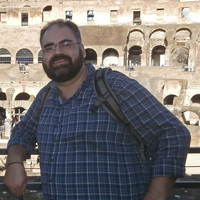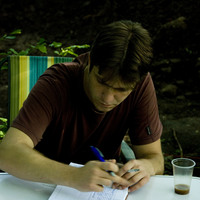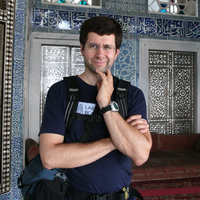
Kathleen Hawthorne
My writing contributes to the re-theorisation of the archaeology of cult by applying new concepts from the discipline of religious studies to interpreting ritual sites. My aim is to demonstrate the contingency and constructed nature of our notions of religion, including ideas of ritual and cult, and to open up an investigation of the role these terms play in archaeological explanations of the past. My argument is not based on a systematic critique of religion and cult in archaeological studies, but rather it is a discussion of how our current theoretical models are flawed and in need of a fundamental review. I use the case study of Balkan pit sanctuaries to illustrate both the unsound theoretical framework currently in use, as well as the kind of interpretative opportunities which the re-theorisation of this area opens up.
My approach is based on the idea that by structuring our notions of religion around belief in a deity/deities, and by mistaking religion so-defined as a universal and sui generis phenomenon, we are actually involved in a thinly-disguised form of theology. As a consequence, when this term of specifically European origins and development is applied unthinkingly to other times and places, it obscures more of the past than it reveals. I believe that once the theological element is removed from ‘religion’, all we are left with are transcendent notions which act to legitimise social order and underpin shared values. The topic of my study then becomes communal acts of identity construction, not ‘religion’. Thus, when considering the pit ‘sanctuaries’, I am not limited to discussing deities, sacred rituals or votive deposits, but rather am concerned with how the actions and objects recorded on so-called ritual sites fit into the larger and more informative picture of social, shared values, and on what basis these notions were granted legitimacy. The core of this thesis therefore is a concern with basic definitions and meaning, how these are created and reflect our world view, our ideas about the past, and how redefining some of our most basic assumptions can lead to new ways of understanding.
Supervisors: Martin Millett
My approach is based on the idea that by structuring our notions of religion around belief in a deity/deities, and by mistaking religion so-defined as a universal and sui generis phenomenon, we are actually involved in a thinly-disguised form of theology. As a consequence, when this term of specifically European origins and development is applied unthinkingly to other times and places, it obscures more of the past than it reveals. I believe that once the theological element is removed from ‘religion’, all we are left with are transcendent notions which act to legitimise social order and underpin shared values. The topic of my study then becomes communal acts of identity construction, not ‘religion’. Thus, when considering the pit ‘sanctuaries’, I am not limited to discussing deities, sacred rituals or votive deposits, but rather am concerned with how the actions and objects recorded on so-called ritual sites fit into the larger and more informative picture of social, shared values, and on what basis these notions were granted legitimacy. The core of this thesis therefore is a concern with basic definitions and meaning, how these are created and reflect our world view, our ideas about the past, and how redefining some of our most basic assumptions can lead to new ways of understanding.
Supervisors: Martin Millett
less
Related Authors
Ventzislav Dintchev
National Institute of Archaeology and Museum, Bulgarian Academy of Sciences
Anelia Bozkova
National Institute of Archaeology and Museum, Bulgarian Academy of Sciences
Chavdar Kirilov
Sofia University "St. Kliment Ohridski"
Rumyana Koleva
Sofia University "St. Kliment Ohridski"
Teodora Bogdanova
National Institute of Archaeology and Museum, Bulgarian Academy of Sciences
Petya Georgieva
Sofia University "St. Kliment Ohridski"
Ilian Boyanov
New Bulgarian University
Veselka Katsarova
Bulgarian Academy of Sciences
Bogdan Athanassov
New Bulgarian University
InterestsView All (35)









Uploads
Papers by Kathleen Hawthorne
Books by Kathleen Hawthorne